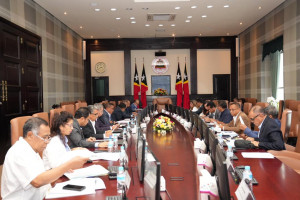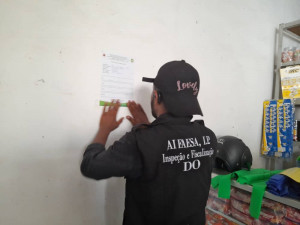Government approves legislative amendment on public health and food inspection

At its meeting on April 17th, 2024, the Council of Ministers approved a legislative amendment concerning AIFAESA, I.P., to clarify its public health and food inspection duties. 
With the establishment of Timor-Leste's National Institute of Public Health, which aims to establish a national reference laboratory for specialised laboratory tests, it has become imperative to optimise material and human resources, ensuring efficient coordination in carrying out the duties and responsibilities of both institutes. 
In this context, this legislative amendment clarifies that the National Institute of Public Health of Timor-Leste, as the national reference laboratory, is responsible for collecting samples and carrying out laboratory tests related to public health and food. AIFAESA will be assigned the other inspection and surveillance competences, thus reinforcing each organisation's role in protecting citizens' health and safety. 
Council of Ministers also decided to direct the Coordinating Minister of Economic Affairs and the Minister of the Interior to create joint teams to carry out control and inspection actions to prevent the smuggling and counterfeiting of tobacco products in the country.
The main mission of these teams will be to combat the smuggling and counterfeiting of tobacco products, thus helping to protect public health, ensure compliance with legal and regulatory standards, and guarantee the correct payment of taxes and duties. 
During the meeting, the members of the Council of Ministers also approved the draft Government Resolution on the Rules of Procedure of the Council of Ministers, presented by the Minister of the Presidency of the Council of Ministers in office, Adérito Hugo da Costa.
The Council of Ministers' Rules of Procedure are an essential legal instrument for the organisation and proper functioning of the Government as a collegiate body. This instrument aims to regulate the organisation and functioning of ordinary and extraordinary meetings of the Council of Ministers, as well as regulating the legislative procedure of the 9th Constitutional Government, to establish effective coordination between the different members of the Government to the benefit of the government's actions, which are intended to be swift and efficient.










































